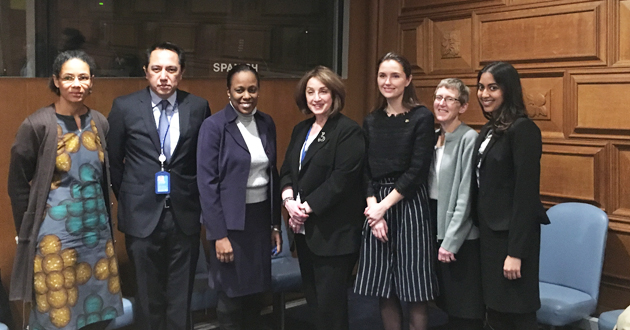The WHO Office at the United Nations, recognizing the critical importance of high level political support and the role of civil society in tackling non-communicable diseases (NCDs), co-sponsored an event at the United Nations focusing on best practices in controlling NCDs, especially in low resource countries.

Several representatives of UN Member States, UN entities, including WHO, academia and civil society organizations participated in the session and together examined ‘best buys’ and strategies for integrating mental and physical health to prevent and manage NCDs. Panelists highlighted the importance of universal health coverage and cross-sector collaboration, drawing attention to cross-cutting issues of mental disorders and the negative impacts of environmental risk factors such as air pollution, climate change and natural disasters, and migration on both physical and mental health.
Ms Sophie Evekink, Technical Officer, represented the WHO Office at the United Nations and introduced WHO’s work on preventing and controlling NCDs. She shared ‘best buy’ suggestions for NCDs and mental disorders, and spoke about linkages between the environment and health.
Stigma and fear associated with mental health disorders were identified as major barriers to healthcare access by Ambassador and Deputy Permanent Representative of Thailand, H.E. Mr Nontawat Chandrtri, who also emphasized the “Bangkok Principles” to advance health in disaster risk reduction.
Jamaican representative, Mrs. Diedre Mills, welcomed the establishment of WHO’s new High-level global Commission on NCDs while introducing her country’s national efforts in combatting NCDs. Representatives from academia and the NGO community also highlighted their roles in tackling NCDs.
The session concluded with a presentation by Dr. Cristina de Carvalho Eriksson, Adolescent Health Specialist at UNICEF, who made a case for investing in adolescent health and their rights to accelerate progress to achieve the SDGs.
